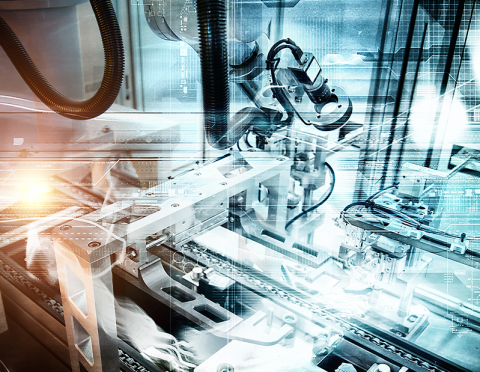Governance
Orgalim is an international not-for-profit association with its legal seat in Brussels. Our membership comprises national associations and European sector associations from the mechanical engineering, electrical engineering, electronics and metal technology industries of European countries. View the full list of members (pdf) and our Articles of Association.
Our members drive our advocacy work through a number of governance bodies and policy committees. Senior industry leaders representing our organisation engage with decision makers at the highest political level. At the working level, Orgalim’s hundreds-strong network of experts contributes input and insights to shape positions on the EU policies and regulations impacting the technology industries. The secretariat in Brussels coordinates this work and manages engagement with the EU institutions.
Orgalim is registered in the European Union Transparency Register, ID number 20210641335-88.

General Assembly
The General Assembly is the supreme governance body of Orgalim, with every member represented. The General Assembly elects the Orgalim Chair and Vice-Chair, who are also Chair and Vice-Chair of the Board of Directors. The assembly meets at least once a year and its decisions are binding on all members.
The current Chair of Orgalim is Stefan Brupbacher (CEO of Swissmem), and the current Vice-Chair is Benoît Lavigne (CEO of FIEEC).
Board of Directors
The Board of Directors, composed of association CEOs, is elected by the General Assembly from representatives of full members of Orgalim. It is responsible for overseeing the management of the association.

Orgalim Council
The current President of Orgalim is Javier Ormazabal, President and CEO of Velatia.
The role of the President is to represent Orgalim externally in dialogue with European decision-makers at the highest level. Internally, they are responsible for strategic agenda setting for the association. He chairs the Orgalim Council composed of Presidents of Orgalim National Associations.
Executive Forum for Advanced Manufacturing
The Executive Forum is a limited membership forum bringing together high-level executives across manufacturing sectors to connect, access valuable insights and influence the industry agenda. The Executive Forum serves as an advisory forum to Orgalim’s Board of Directors and gathers company leaders shaping today’s industrial transformation. Full list of members of the Executive Forum (pdf).

Policy Committee
Orgalim’s Policy Committee is tasked with driving the association’s strategic policy agenda. With membership comprising our members’ CEOs and policy leads, it is constituted to set political priorities and ensure strategic coherence across the wide range of policies on which Orgalim is active.
The Policy Committee meets twice a year in conjunction with the Orgalim Convention, but can also meet ad hoc as required.
The current Policy Committee Chair is Mafalda Gramaxo (AIMMAP).
Working Groups
Practical policy work across Orgalim’s horizontal areas of interest is led by working groups. Chaired by a member representative, these groups are composed of specialists in the respective areas from across our membership. They are supported by a number of task forces on specific issues of interest. Full list of Working Groups (pdf).

Secretariat
The Orgalim secretariat is responsible for the day-to-day operation of the association, implementation of the Orgalim work programme and coordination of policy committees and working groups. The work of the secretariat is led by Director General Malte Lohan. Appointed by the General Assembly, the Director General is supported by a team of around 30 based in Orgalim’s Brussels offices.
The secretariat manages engagement with the EU institutions, publishes political analysis and intelligence, and gathers industry data. Further activities include the delivery of services to clients through the Partnership department and the provision of legal publications to support the day-to-day work of companies operating in the EU.
